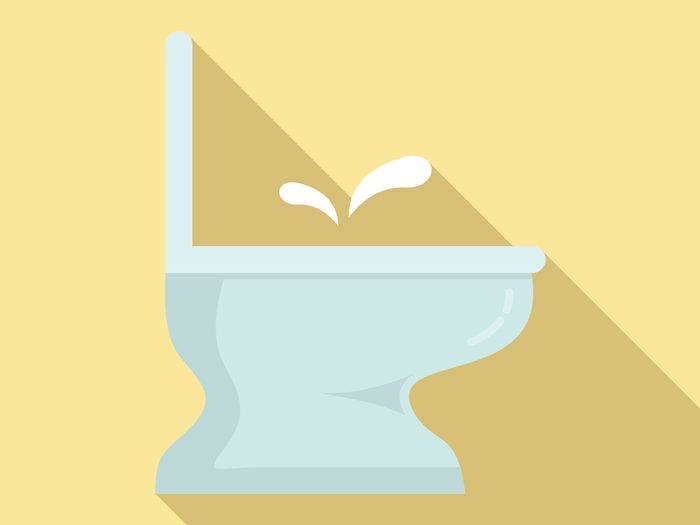Why You Might Want to Add a Bidet to Your Toilet

The bidet has been common in many parts of the world, but now it’s catching on in North America.
In many parts of the world—including Europe, the Middle East and much of Asia—bidets enjoy plenty of popularity. Muslims use a similar tool called a lota (a small, water-filled pot that sits beside the toilet) to wash their backside—cleanliness is considered very much next to godliness in Islam, and being as clean as possible, especially prior to prayers, is essential. But in North America, there tends to be confusion around washing versus wiping, and bidets are usually a punchline. In fact, it took a global pandemic to finally make us reconsider the whole concept of bidets.
During the early days of COVID-19, bidet sales rose due to toilet paper shortages across North America and an uptick in germ phobia. Tushy, a popular New York-based bidet company, saw revenues rise by a factor of 10 in March 2020 in the U.S. In Canada, we’ve been a little more open to the device for a bit longer. Tushy’s founder and chief creative officer Miki Agrawal says that bidet sales in Canada have more than doubled year-over-year for the past five years. Meanwhile, British Columbia-based bidet company Clean Touch representative Michael Xie says they’ve seen a steady increase in sales over the past 20 years, and exponential growth recently.
“Because Canada has such a diverse range of cultures, including those who are already familiar with bidets, adoption isn’t as slow compared to countries with less cultural diversity,” Xie says. “These days, hygiene is very important. And besides actually taking a bath or a shower, a bidet is the best way to clean oneself after using the toilet.”
Bidets also mean cleaner hands. According to a 2005 study involving residents of a nursing home that used bidets, the “wash-and-dry” system improved not only cleanliness but also comfort, with a reduction in bacteria content on hands and bottoms.
(Related:‘I Have a Cloud Over Me’: How Isolation Affects Seniors Living at Home)
The health benefits don’t stop there. Bidets can bring comfort to those with gastrointestinal issues, including irritable bowel syndrome, Crohn’s disease and ulcerative colitis, as frequent bathroom visits can cause skin irritation (especially for vigorous wipers). For older people, particularly those with mobility issues or arthritic hands, it can make cleansing easier and reduce shame.
“For people with itching or discomfort in the perineal area, bidets are a great option to help mitigate that,” says Dr. Talia Zenlea, a Toronto-based gastroenterologist. “Sometimes we have patients who—because of hemorrhoids, prolapse or other similar issues—have difficulty with feeling like they have good hygiene. In that context, a strategy with water might be an option where they might feel a greater sense of cleanliness.”
Using bidets can be a little more complicated for those with vaginas, especially if they are pregnant. A 2010 study found that regular bidet use can disrupt the balance of vaginal microflora, either by depriving normal microflora or “facilitating opportunistic infection of fecal bacteria and other microorganisms.” But research on this is still minimal, and according to one 2013 study, bidets pose no health risk of preterm birth or bacterial vaginosis for pregnant people.
(Related: How to Build a Strong Microbiome to Improve Your Gut Health)
Zenlea adds, “Water itself is always a great approach, but when it comes to pressurized bursts, that’s a different story. Sometimes a gentle rinsing in the bath can be preferable. In the case of [post-partum] women, anything more might disrupt stitches.” Many bidets do offer pressure moderation controls (and others can have this feature added for less than $100). Still, it’s always helpful to consult your doctor if you’re feeling hesitant.
But if your worry is due to a taboo around poo, just remember: No less an icon than Judy Blume has professed her love of bidets, calling them “the greatest luxury.” Bidets win sustainability points, too, for being much less wasteful than toilet paper for wiping. In America alone, according to the Natural Resources Defense Council, each individual uses three rolls of toilet paper per week, which is more than any other country in the world. That equates to 15-million trees and 473-million gallons of water, based on a Scientific American report, so imagine the difference if even half switched to bidets. If wet wipes have been your seemingly clever alternative, I’m sorry to inform you, but those also amount to considerable waste and can clog and damage sewer systems.
A shower for your butt, however, reduces waste, helps the environment and keeps your perineal area healthier. Plus, imagine how fun it’ll be to explain that fancy new appliance in your bathroom to guests. Consider it the conversation starter you never knew you needed.
Next: Can a Kegel Chair (Yes, a Kegel Chair) Improve Your Pelvic Health?




